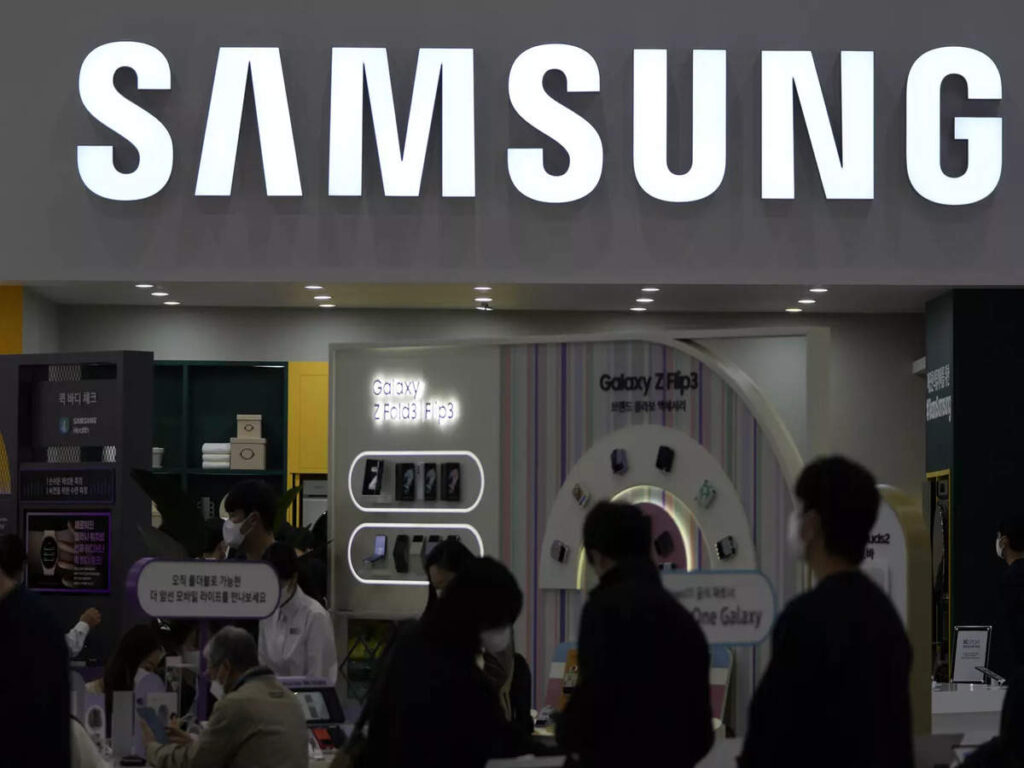|
Getting your Trinity Audio player ready...
|
Samsung Electronics (005930.KS), the South Korean tech giant renowned for its memory chips, smartphones, and televisions, is expected to report an 80% decline in its third-quarter profit compared to the previous year, primarily due to the persistent global chip glut.
The company, which holds the title of the world’s largest manufacturer of memory chips, smartphones, and televisions, is set to unveil its preliminary earnings results for the third quarter on Wednesday.
According to a consensus estimate known as the LSEG SmartEstimate, gathered from 19 analysts, the operating profit for Samsung is projected to have dropped to 2.1 trillion won ($1.56 billion) for the July–September quarter. This figure is a substantial reduction compared to the operating profit of 10.85 trillion won achieved in the same quarter last year.
This significant downturn can be attributed to the chip division, traditionally Samsung’s most profitable sector. Analysts suggest that the chip division likely reported quarterly losses ranging between 3 trillion and 4 trillion won. These losses stem from the prolonged low prices of memory chips, which failed to rebound as quickly as anticipated.
Moreover, Samsung’s decision to curtail chip production exacerbated the issue by reducing economies of scale and increasing chip production costs. The company had initially announced production cuts in April and further reduced production in the third quarter to deplete inventory, adapting to the worst industry downturn in decades fueled by a chip glut.
Rival company Micron Technology (MU.O) had previously predicted a quarterly loss, raising concerns about a sluggish recovery within the memory chip manufacturing industry, particularly in markets like data centers.
The reluctance of smartphone and personal computer manufacturers to purchase new memory chips and the utilization of existing inventory has also contributed to the current situation. However, analysts anticipate that with inventories reaching lower levels, demand for memory chips will likely rebound early next year.
Encouragingly, Samsung recently secured its first order in a year for server memory chips from a North American data center firm, as reported by KB Securities. This development has raised hopes that data center clients may soon resume chip purchases.
Despite the challenges in the chip division, there is a silver lining in the form of robust demand for memory chips used in artificial intelligence applications, particularly high bandwidth memory (HBM). However, Samsung faces competition from rival SK Hynix (000660.KS) in developing these chips and securing clients like AI-chip leader Nvidia (NVDA.O).
On a more positive note, Samsung’s mobile business is expected to report an operating profit of around 3 trillion won. This was achieved through the successful launch of premium foldable smartphones during the quarter, driving sales even in the face of a subdued global smartphone market.
Samsung Electronics’ upcoming earnings announcement will shed further light on the impact of the chip glut on the company’s overall financial performance, as well as its strategies for navigating these challenging market conditions.



